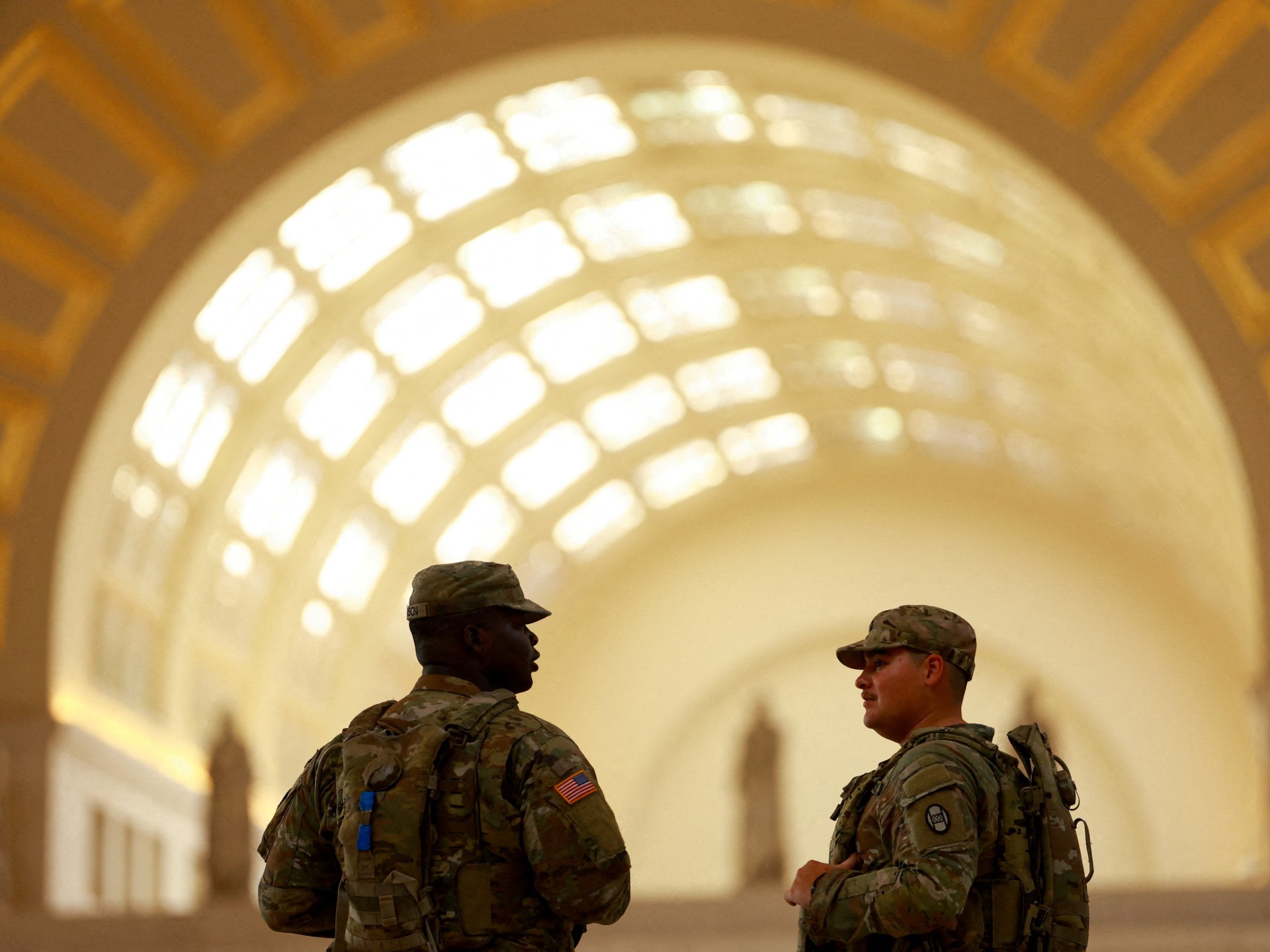Democratic leaders in the United States are warning that President Donald Trump does not have the authority to deploy US troops to Chicago amid reports of administration plans to send National Guard soldiers to the Midwestern city.
Trump, a Republican, has said he would likely expand the deployment of federal forces to oversee policing in Washington, DC, to other cities, including Chicago. On Sunday, he also suggested the possibility of sending troops to Democratic-run Baltimore in Maryland.
Democratic House of Representatives Minority Leader Hakeem Jeffries on Sunday denounced plans to deploy federal forces to Chicago. Crime rates, including murders, have declined in Chicago in the last year.
“There’s no basis, no authority for Donald Trump to potentially try to drop federal troops into the city of Chicago,” Jeffries told CNN.
The US Constitution gives the power of policing to the states.
The Washington Post reported on Saturday that the Pentagon has been drawing up plans for a potential troop deployment in Chicago for weeks.
JB Pritzker, the Democratic governor of Illinois, where Chicago is located, was quick to reject the push.
“Donald Trump is attempting to manufacture a crisis, politicize Americans who serve in uniform, and continue abusing his power to distract from the pain he is causing working families,” JB Pritzker said in a statement.
Leveling criticism at Maryland’s Democratic Governor Wes Moore over crime rates in Baltimore, Trump said he was prepared to deploy troops there, too.
In July, the Baltimore police department said there had been a double-digit reduction in gun violence compared to the previous year. The city has had 84 homicides so far this year – the fewest in over 50 years, according to the mayor.
“If Wes Moore needs help… I will send in the ‘troops,’ which is being done in nearby DC, and quickly clean up the Crime,” Trump said on his social media platform, Truth Social, on Sunday.
Since he entered politics in 2015, Trump has described major cities, which are almost all run by Democrats, as infested by crime, drugs and homelessness.
That perception echoed some rural conservative attitudes towards liberal cities.
Earlier this month, several Republican governors sent hundreds of National Guard troops to Washington at Trump’s request. The president has depicted the capital as being in the grip of a crime wave, although official data shows crime is down in the city.
On Sunday, Trump asserted without evidence that there was now no crime in the US capital and credited it to his deployment of troops and hundreds of federal law enforcement personnel.
The US president’s critics have warned that the crackdown in Washington may be a test run for the broader militarisation of US cities.
Trump has much less power over Chicago and Baltimore than he does over the District of Columbia, the seat of the federal government, which is not part of a US state.
Title 10 of the US Code, a federal law that outlines the role of the US Armed Forces, includes a provision allowing the president to deploy National Guard units to repel an invasion, to suppress a rebellion or to allow the president to execute the law.
Trump cited this provision, known as Section 12406, when he sent National Guard units to California earlier this year to counter protests, over the objections of Governor Gavin Newsom.
In the case of Chicago, Trump may argue that local laws that bar city officials from cooperating with federal immigration agents justify the military presence.
Trump is almost certain to face legal challenges if he uses Section 12406 to send National Guard troops from Republican-led states into Democratic strongholds.
